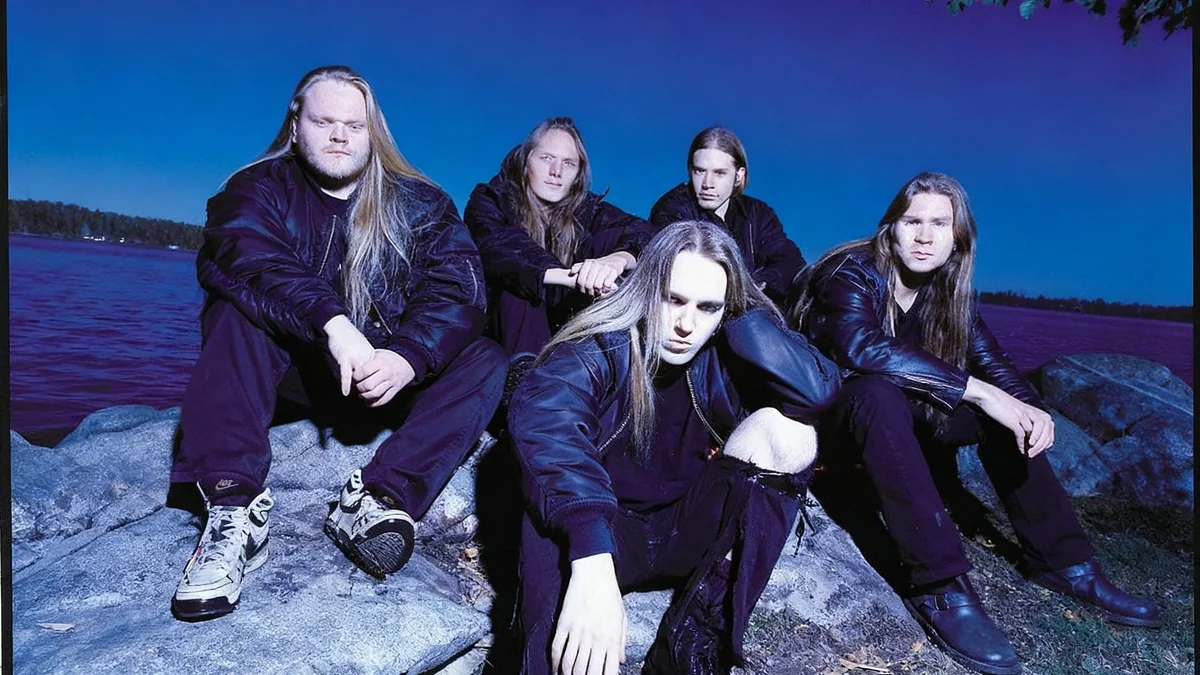Folk music icon Donovan has recently stated he acted as a significant "catalyst" for several major rock bands, including Led Zeppelin, Pink Floyd, and The Beatles. In a new interview, Donovan reflected on his career and highlighted his influence on these legendary groups.
Key Takeaways
- Donovan claims he was a "catalyst" for major bands like Led Zeppelin, Pink Floyd, and The Beatles.
- He defines a catalyst as someone who brings elements together to create something new.
- David Gilmour of Pink Floyd and Robert Plant of Led Zeppelin reportedly sought out Donovan's past possessions.
- Donovan also shared an anecdote about Happy Mondays' Shaun Ryder acknowledging his influence.
- He considers being a conscious catalyst his greatest achievement.
Donovan's Self-Proclaimed Catalytic Role
Donovan, the singer-songwriter known for hits such as "Mellow Yellow," "Hurdy Gurdy Man," and "Sunshine Superman," recently spoke about his career. In an interview published on September 29 in "The World’s Greatest Music Newsletter," Donovan discussed his legacy and what he views as his most significant accomplishment. He did not choose a specific chart success.
Instead, Donovan focused on his impact on other musicians. He described himself as a "catalyst," a term he learned from George Harrison of The Beatles. A catalyst, in Donovan's view, is someone who combines different elements to create something entirely new and unique in music.
"It should be what I’ve achieved, but I realized that, as a catalyst, what I suggested with what to do with blending and fusing styles of music… I didn’t know what to call that achievement, but I worked it out when George Harrison said, ‘Donovan is a catalyst’. A catalyst can put two things together and create something completely different," Donovan stated in the interview.
Influence on Iconic Artists
Donovan elaborated on his role, suggesting that his influence extended to multiple important artists. He noted that while he prefers not to boast, some musicians have directly acknowledged his impact on their work. This validation, he explained, comes from the artists themselves.
One notable example he shared involved David Gilmour, the guitarist from Pink Floyd. Gilmour reportedly purchased Donovan's former cottage. When Donovan inquired about the reason for the purchase, Gilmour responded that Donovan had written many of his songs there. Gilmour apparently hoped that the creative energy from the cottage would transfer to him.
Interesting Fact
Donovan's 1965 Aston Martin was reportedly bought by Robert Plant of Led Zeppelin. Plant hinted that he believed Donovan might have composed songs in the car, seeking a similar creative connection.
Connecting with Led Zeppelin and Happy Mondays
The theme of artists seeking a connection to Donovan's creative spaces continued with Robert Plant of Led Zeppelin. Donovan claimed that Plant acquired his 1965 Aston Martin for similar reasons. Plant initially mentioned the car's beauty and custom features. However, when pressed for the real motivation, Plant suggested that Donovan might have written songs in the vehicle.
This pattern suggests a recognition among these musicians of Donovan's distinctive songwriting and pioneering blend of musical styles. His early folk-rock sound often incorporated elements of psychedelia, a genre that would later become central to bands like Pink Floyd.
Background on Donovan's Music
Donovan Leitch, often known simply as Donovan, rose to prominence in the 1960s. He was a key figure in the British folk revival and later became known for his psychedelic folk and pop music. His work often explored spiritual themes, incorporating elements of jazz, classical, and world music, which was innovative for the era.
An Encounter with Happy Mondays
Donovan also recounted an interaction with Shaun and Paul Ryder of the Happy Mondays, a band known for its unique blend of dance, rock, and psychedelia from the "Madchester" scene. During an acoustic tour, the Ryder brothers attended one of Donovan's performances. They invited him to the Hacienda, a famous dance club.
When Donovan eventually joined them, Shaun Ryder made a candid admission. He confessed to having "stolen" Donovan's song "Sunshine Superman" and stated he would not pay royalties. Donovan, however, reacted calmly. He expressed that it was acceptable because he viewed himself as a catalyst. He asked why Ryder had taken the song.
Ryder explained that he and his brother, along with the band, were "thieves all over Manchester" when they were young. Shaun Ryder later apologized for the theft. Donovan accepted the apology and told him he could keep the song. This interaction, Donovan explained, illustrates the varied ways his role as a catalyst manifests.
Key Era of Influence
Donovan's most influential period, the mid to late 1960s, saw him experiment with musical forms that predated the heavy rock of Led Zeppelin and the progressive soundscapes of Pink Floyd. His early work helped to expand the boundaries of popular music.
The Significance of Being a Conscious Catalyst
Donovan emphasized that being a "conscious catalyst" is his greatest achievement. He believes that many artists desire a part of his creative approach or influence. This desire, he feels, validates his unique contribution to music history.
His claim highlights the often-unseen connections and influences that shape musical genres and artist development. While specific direct collaborations may be limited, the ripple effect of an artist's innovation can inspire countless others, leading to new sounds and directions in music.
For Donovan, his impact is not merely about writing hit songs, but about inspiring and enabling other iconic artists to create their own groundbreaking music. This perspective offers a different way to measure an artist's legacy, focusing on foundational influence rather than just individual success.
The interview provides a unique insight into how artists perceive their own contributions and the intricate web of creative inspiration that connects different generations and styles of music. Donovan's statements underscore the lasting power of artistic influence.




